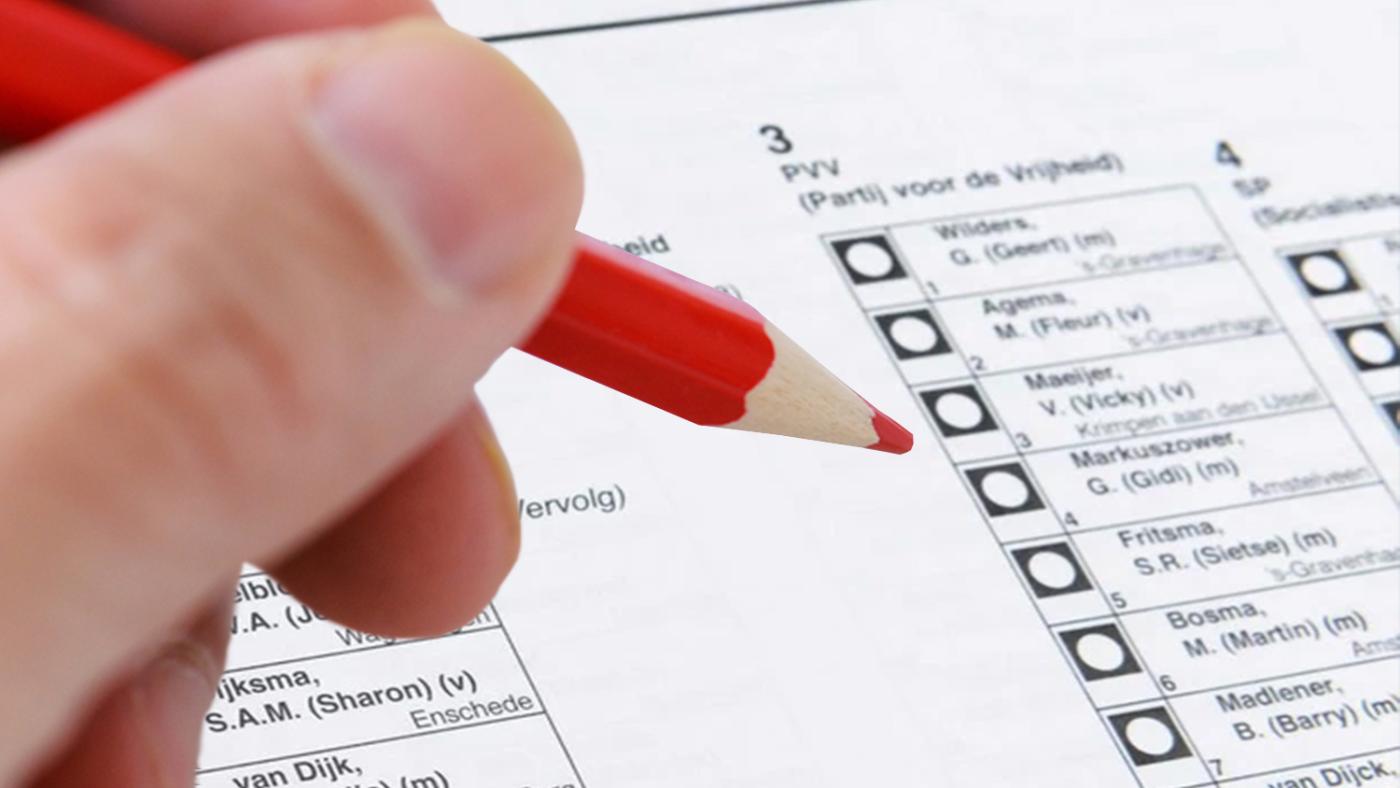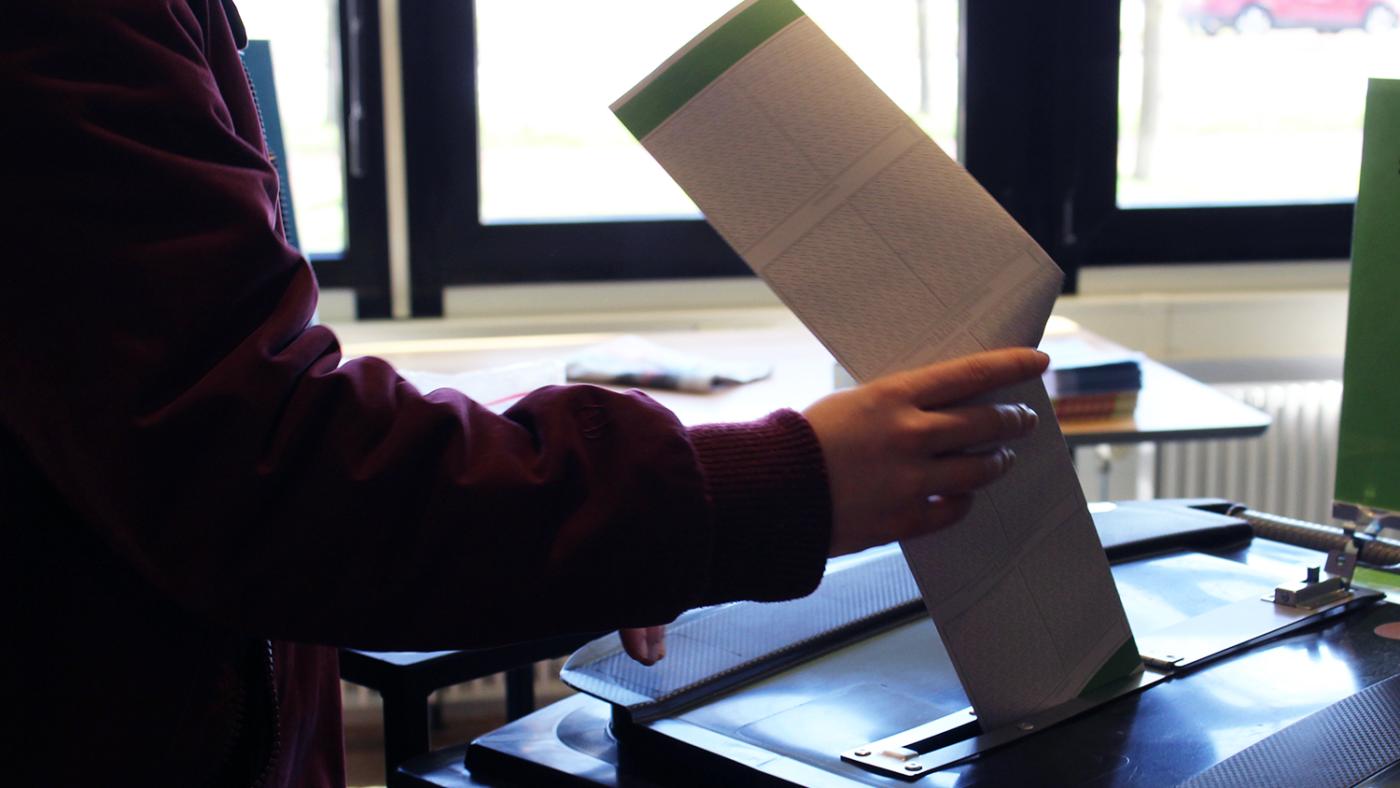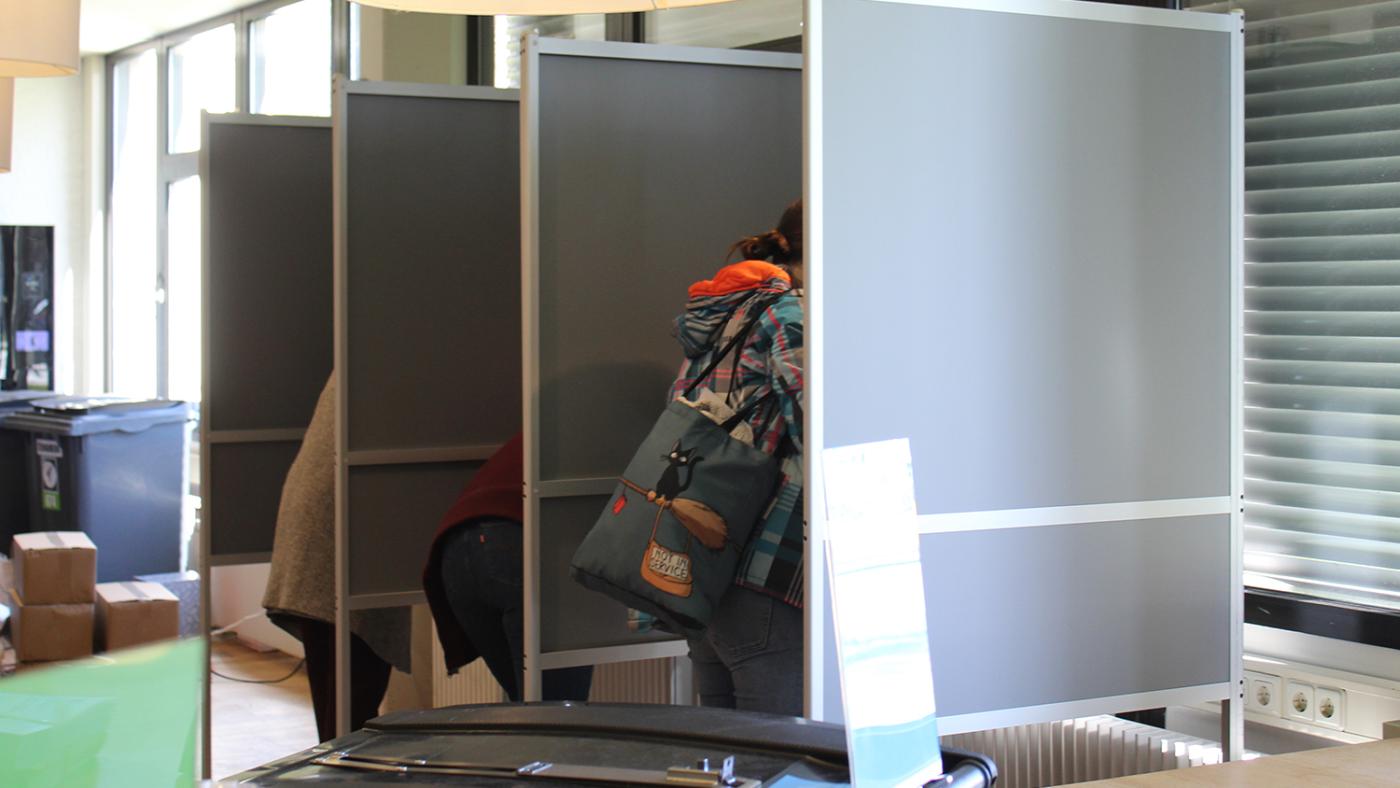Students who voted for PVV, Geert Wilders' party
‘I think we're letting way too many people in right now'

There were three polling stations at Utrecht Science Park in the 2023 parliamentary elections: one in the Administration building, one at UMC Utrecht, and one in the Koningsberger building. A total of 4,025 valid votes were cast at these three polling stations, of which 116 went for PVV. That's less than 3 percent. Everyone could vote at these polling stations, not just the students and employees of the university. Nevertheless, it is a good indication that PVV is not popular among Utrecht students.
Few UU students know a PVV voter personally, but they are out there. DUB found two who agreed to tell us why they voted for Geert Wilders’ party. One studies Law and lives with his parents in Huizen, while the other studies at the Faculty of Science. Both wish to remain anonymous. We will call them by the fictitious names Joost and Jason.

Why do you want to remain anonymous?
“I just want to be able to choose when to discuss my political preferences,” says Law student Joost. “I do that regularly. I’m not afraid to say that I voted for PVV and I’m not ashamed of it. But, if I appear in a DUB article, there’s a good chance people will come to me with unsolicited criticism, and I don’t need that in my life.”
Jason agrees. “I would like to remain anonymous because people are prejudiced against you when they learn you voted for PVV. I am part of a committee alongside other students, where decisions have to be made. If they knew I voted for PVV, my arguments would be judged differently, so I prefer to avoid that. Unless people ask about it directly, I don’t see the need to make it public. But, if people are really interested, I’m happy to talk about it.”
Was this a strategic vote?
"No", says Science student Jason. As soon as he was allowed to vote, he chose PVV. “I just agree with most of their points.”
Things were a little different for Joost. “I don't mind a centre-right cabinet. But, last year, I noticed that many people were dissatisfied with VVD (the party with the most seats in the Dutch Parliament before the 2023 elections. Mark Rutte, from VVD, has been the Prime Minister of the Netherlands since 2010, Ed.). In addition, GroenLinks (Green Left) and PvdA (Labour's Party) suddenly allied under the leadership of Frans Timmermans, which I saw as a great danger. That man is all about taxes, subsidies, benefits, etcetera. Those who earn more money will soon have to pay for everything. I think that’s nonsense because, if you earn a lot of money, it means you've worked hard for it. My parents are quite wealthy and I think I’ll earn a lot as a lawyer one day.”
But it was partly a protest vote as well. “Wilders always goes against the establishment. In any case, the fact that PVV had become the biggest party shows how dissatisfied the Netherlands is about issues such as the housing market. Politicians have done too little about that problem these past few years. They have only made things worse with their open migration policy."
What do you think about Wilders’ views on the climate?
Joost appreciates that Wilders wants to spend much less money on climate change. “It’s a problem we contribute little to nothing to, compared to much bigger countries like China. It is unfair that we should have to invest so much taxpayers’ money. I'm talking about combating CO2 emissions at all costs. That doesn’t mean I’m against sustainable innovations. For example, I think generating electricity with solar panels is a very good idea. They last a long time and you can save money with them.”
Jason thinks it’s a shame that there doesn’t seem to be a "green right" party. “I think something needs to be done about the fragmentation of nature in the Netherlands. Everyone likes to walk in a beautiful forest. I am in favour of sustainable solutions for a clean living environment. National sovereignty is a good reason why local energy generation with solar panels is a good thing. Climate has become an end in itself for the left, rather than part of a better life. Ironically, the climate debate undermines a good life, because it makes people feel guilty.”
What about immigration?
Immigration policy is the main reason Jason and Joost voted for Wilders.
Joost: “I think we’re letting far too many people in right now. We spend a lot of money on immigration, it’s bad for the economy, and it makes the housing market even more inaccessible for the Dutch. People from Ukraine are given priority, while we're already short on houses, big time."
“From a humanistic point of view, I understand why those people are given priority. However, I believe that you should first help the people from your own country. The more foreigners you let in, the harder it becomes to do that. You can’t put them all in a refugee camp. I think it’s very good that Wilders is against family reunification and that he wants to send asylum seekers who have exhausted all legal pathways to citizenship back to their country of origin as soon as possible.”
Jason: “When it comes to globalisation, we have to set boundaries somewhere. There should be enough jobs for everyone and not everyone can (or wants to) go to university. That’s why we shouldn’t outsource all our 'unskilled work' to people from abroad. PVV pays a lot of attention to this, you could even say that they are moving to the left on the socio-economic front. I’m happy about that."
“In addition, the housing crisis demonstrates that we don’t have room for any more people at all. You can always keep building houses, of course, but then there won't be anything left in terms of environment.”
Joost understands that immigration is the biggest reason why Wilders wants to leave the European Union. But he vehemently disagrees with that view. “I think we need the EU and the Euro.” Jason is not keen on a "Nexit" (how Wilders calls a Dutch Brexit, Ed.) either, but he would be in favour of the Netherlands having a national currency.
What do you think about PVV’s attitude towards Islam?
Joost does not agree with Wilders’ statements about Islam. “Fortunately, in all his recent debates and interviews, he has indicated that he is not going to carry them out. That’s what I’m relying on. You can’t expel anyone without a good reason.”
Jason thinks it’s neat that Wilders says he is willing to "put his statements about Islam on hold". The student explains: “He doesn’t deny that he's said those things, which indicates that he is sincere. This way, Wilders shows that he still stands by these opinions, but he also understands that he has to give in at some points to be able to work with other political parties in the interest of the country. That’s to his credit.”
Do you have friends who vote for left-wing parties?
Joost: “I only hang out with people who vote for right-wing parties. I think this has a lot to do with where you grew up, what party your parents vote for, and the people they hang out with. If you only come into contact with right-wing people growing up, it makes sense for you to be inclined to be right-wing as well.”
Jason does have friends and acquaintances who vote for left-wing parties. “As long as they are open to other points of view and are not afraid of jokes. There should be room to tease each other about these differences a little bit. But a great chunk of my closest friends voted for PVV.”
Do you feel at home at UU, considering its predominantly left-wing community?
Joost says he is surrounded by PVV voters at the Faculty of Law, so he doesn’t experience much of the left-wing climate at UU. “I think there are more right-wing voters at the Faculty of Law than in any other programme. Lecturers are often the most left-wing people in the room.” Joost also has a theory as to why many students vote for the left. “They think they can quickly make the world a better place, just like that. But that’s not realistic at all.”
Jason knows someone who wanted to vote for PVV but didn’t dare to do it because most people around him at UU were left-leaning. “Guilt kept her from doing it, even in the voting booth. She regrets it now. I also know people who dropped out because they felt constantly forced into left-wing views they didn’t agree with. Personally, I’m not that sensitive. I think it’s all interesting.”

What are your views on the anglicization of higher education at UU?
Joost: “It is important to learn to speak English well when you're at the higher education level, as the language is important for trade and other international relations. However, I also think it is important that Dutch people can express themselves well in their language. That ability is clearly worsening in our society, but I think that has more to do with the TV series we watch and social media, where a lot of content is in English, than with higher education.”
To Jason, the Netherlands must remain accessible to all Dutch people, including those who do not speak English well. “My grandfather can’t speak English, for example. When he was still living in Amsterdam, he didn't feel at home at his local café anymore because most of the patrons and waiters spoke English.”
How welcome are international students?
Joost: “We make things difficult enough for international students. It costs them much more money to study here, compared to most Dutch students. If you or your parents can afford that, then I think it’s absolutely right that you come here to study. That’s just life. Some people can afford it, others can’t.”
Jason disagrees. In his view, the university should limit the number of international students. "It's not because I don’t like them. In fact, many of my friends at uni are foreign. But there are simply too few houses available and it costs a lot of money.’’
What do you think about PVV voters being called names?
“I don’t feel intimidated at all,” says Joost. “Sometimes I don’t feel like having a discussion, but at other times I like to provoke others with the fact that I voted for PVV. In workgroups, for example.”
Jason largely attributes the anger towards right-wing people to mainstream media. “They’re mostly left-wing and I know plenty of left-wing people who think so too. As a result, the left-wing point of view is normalised in society, while right-wing ideas are 'bad.' If you put forward right-wing arguments in a discussion, you will get moralistic answers. It makes sense that Wilders wants to abolish state subsidies to NPO (Dutch Foundation for Public Broadcasting, the organisation that administers public broadcasting services in the Netherlands, Ed.).”
Would you like Wilders to become our prime minister?
Joost hopes he will be the next prime minister as he believes he is ideally suited for the role. “He’s been in politics for so long now and has so much experience. He deserves this chance to prove himself.”
Jason would prefer to see Wilders as a member of parliament because he thinks that suits Wilders’ qualities better. “He can be quite extreme and provocative. I would like to see a PVV member taking up the role of prime minister, but maybe it should be a more moderate person. I do think that Wilders has earned it, though. He is capable.”